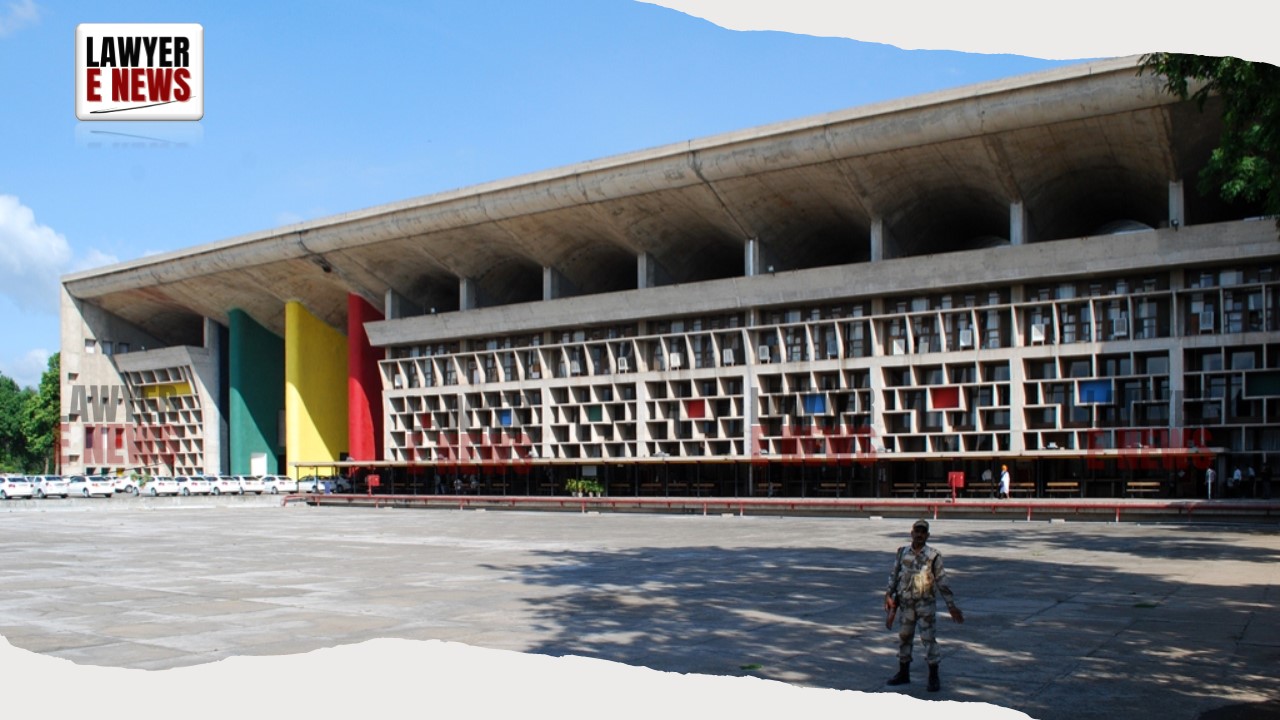-
by Admin
15 February 2026 5:35 AM



No One Should Be Considered Guilty Until Proven Beyond Doubt," Rules High Court Granting Bail, PH High Court highlights the constitutional right to a fair trial and the importance of speedy justice, ordering release of an accused in bank dacoity case after prolonged pre-trial detention.
Punjab and Haryana High Court, in Kulwinder Singh alias Madhar vs. State of Punjab, Criminal Misc. Petition No. 35230 of 2024, granted regular bail to the petitioner, who had been in custody for more than 2 years and 7 months in connection with a bank dacoity. The court underscored the fundamental principle that an accused is presumed innocent until proven guilty and that prolonged pre-trial detention violates the right to a speedy trial under Article 21 of the Constitution of India.
The petitioner, Kulwinder Singh alias Madhar, was accused of participating in an armed bank robbery at the Punjab and Sind Bank branch in Amritsar, where approximately ₹5.08 lakh was stolen. The case was registered under Sections 392, 395, and 506 of the Indian Penal Code (IPC) and Sections 25, 54, and 59 of the Arms Act, 1959. The petitioner was arrested based on the disclosure of a co-accused and had remained in custody for over 2 years without significant progress in the trial. He sought regular bail under Section 439 of the Code of Criminal Procedure (CrPC), arguing that the prolonged detention violated his right to a fair and speedy trial.
The central legal question was whether the petitioner, despite being accused of a serious crime, should be granted regular bail, considering the extended period of pre-trial detention and the principle of presumption of innocence.
The petitioner argued that he was falsely implicated based on the disclosure of a co-accused, that the trial had made little progress, and that his continued detention served no purpose. The prosecution opposed the bail, citing the seriousness of the crime and the petitioner’s involvement in other criminal cases. However, the prosecution could not substantiate any direct involvement of the petitioner in the crime beyond the disclosure of the co-accused.
The court emphasized the presumption of innocence as a fundamental postulate of criminal jurisprudence, stating:
"No one should be considered guilty, till the guilt is proven beyond reasonable doubt" [Para 4]. The court further noted that, in this case, only 3 out of 16 prosecution witnesses had been examined, indicating that the trial would take considerable time.
The court also referred to Article 21 of the Constitution, which guarantees the right to a speedy trial, and held that keeping the petitioner behind bars indefinitely, without substantial progress in the trial, violated this right. Citing Dataram vs. State of Uttar Pradesh (2018), the court reiterated that bail is the general rule, and imprisonment is an exception.
The prosecution argued that the petitioner had a criminal history and was involved in other FIRs. The court acknowledged that while the petitioner’s criminal antecedents were relevant, they should not automatically disqualify him from bail. The court emphasized that each case must be evaluated on its own merits, stating:
"The pendency of other cases cannot preclude the petitioner’s right to bail in the present case" [Para 5].
The court referred to Baljinder Singh alias Rock vs. State of Punjab, where it was held that criminal antecedents should not be the sole reason to deny bail, as the evidence in each case must be assessed independently.
The court allowed the bail petition, directing that Kulwinder Singh alias Madhar be released on regular bail upon furnishing bail and surety bonds to the satisfaction of the trial court. It was clarified that the observations made in the order should not be construed as an expression of opinion on the merits of the case.
The court’s decision reinforces the principle of presumption of innocence and the constitutional right to a speedy trial. The ruling highlights that extended pre-trial detention, without substantial progress in the trial, can infringe upon the rights of the accused, even in cases involving serious charges such as bank dacoity.
Date of Decision: October 16, 2024
Kulwinder Singh alias Madhar vs. State of Punjab
